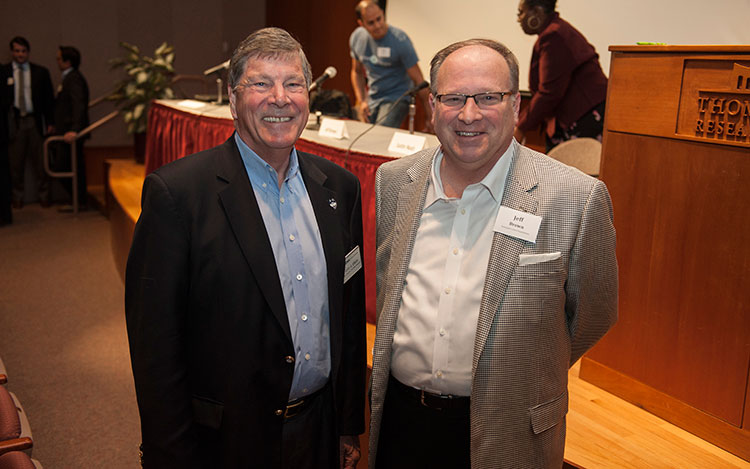UConn Today – When a team of technicians travels by boat from New London, Conn. to South Fork Wind, the Orsted-company’s expansive offshore wind farm, their vessel travels at a very slow speed to prevent disruption to whales and other marine life.
And while that is the best thing to do for the environment, the slow-moving boat gets rocked hard by the waves, making many members of the crew seasick before they get to the job site.
In addition, because of the speed limits, it takes up to 3.5 hours to get to the destination, a longer time than the technicians spend doing their work. It is just one of many stories shared at the annual Global Business Leadership in Sustainability Summit in Storrs on Friday, illustrating the challenges of implementing new technology and the complexity of creating a greener Earth.


